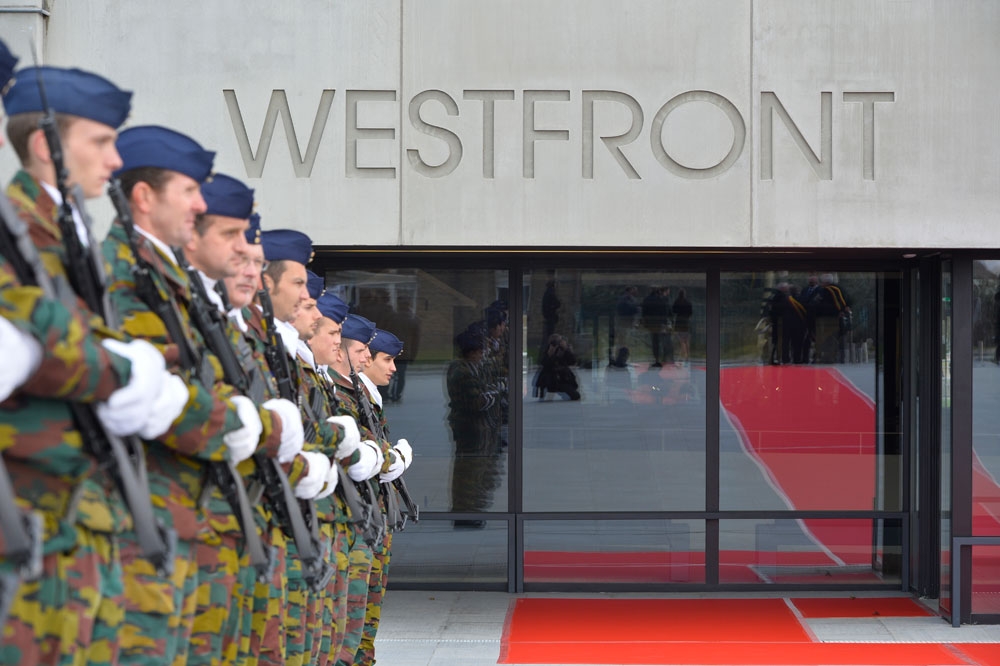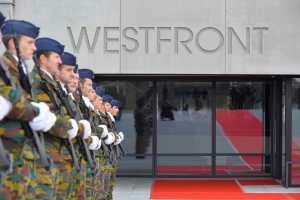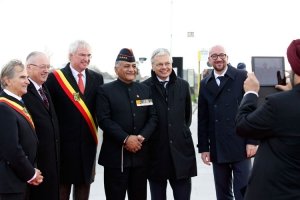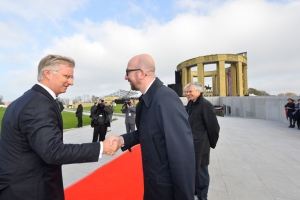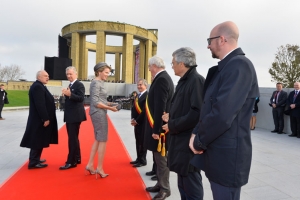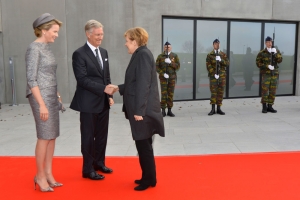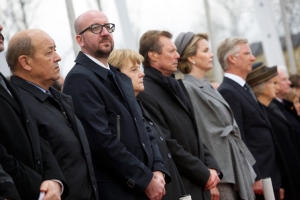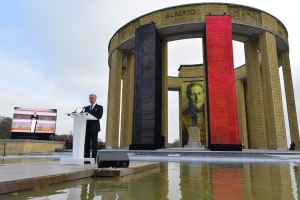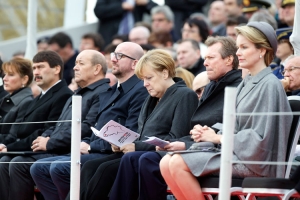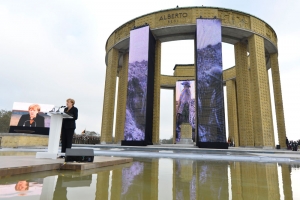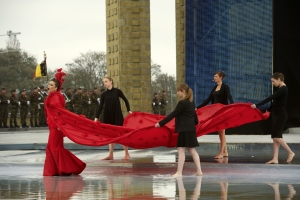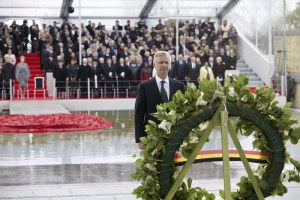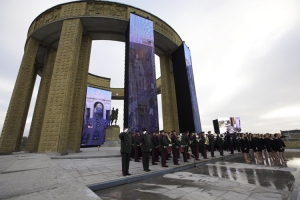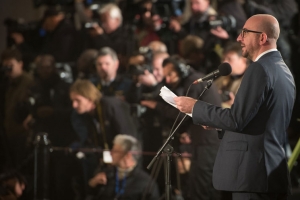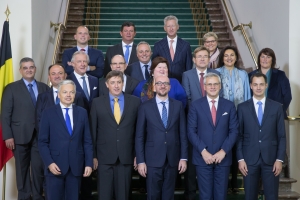Speech of Prime Minister Charles Michel
Your Majesties,
Honourable Heads of States, Royal Highnesses, Excellencies,
Ladies and Gentlemen,
In the wake of Nieuport, it is with deep emotion that I welcome you to Ypres. I value your presence here at this historical site. I would like to thank you for accepting Belgium's invitation to these commemoration ceremonies.
The Menin Gate is a venerable shrine to the memory of the First World War in Belgium. This Memorial to the Missing is dedicated to the British and Commonwealth soldiers who fought here. The names of 55,000 of these soldiers are engraved on these large panels.
However, this monument was not sufficient to pay tribute to all the soldiers who have no known graves. The names of 35,000 others are inscribed on the Tyne Cot Memorial not far from here. This Menin Gate Memorial represents the survivors' commitment to ensuring they may all rest in peace and creating a lasting monument in stone to their sacrifice. Back in 1927, Field Marshall Lord Plumer wrote, to mark the inauguration of this monument : "They are not missing. They are here." Ever since 1928, the citizens of the city of Ypres have been honouring this sacrifice by playing the Last Post every evening at 8 o'clock. This daily gesture of gratitude by the people of Ypres is echoed by all the people of Belgium.
Your Majesties,
Honourable Heads of States, Royal Highnesses, Excellencies,
Ladies and Gentlemen,
Belgium's manifold aim of hosting these commemorations first and foremost involves paying tribute to all the civilians and soldiers, who suffered, were injured or lost their lives in this dreadful conflict. Families, men, women and children all around the world were stricken with sadness and grief. May they be remembered.
One hundred years ago, the conflict that broke out a few weeks earlier took a different direction. It is difficult nowadays trying to imagine the effort, despair, rage faith and courage that inspired these soldiers individually, buoyed them up and led them as far as Yser after weeks of intense fighting. Unfortunately, their respite, afforded by using nature as a bulwark against the irresistible enemy assailants, as a result of flooding the plain, turned out to be short-lived.
Through all of you gathered here today to represent your countries, I would like to thank and pay tribute to the very many troops who came here from Africa, North and South America, Asia and Oceania to fight on the plains of Ypres, embroiled, through no fault of their own, in a conflict they knew nothing or little about. They answered the call through a sense of duty and loyalty that led them far away from their homes to a place where so many of them met their deaths.
This duty to remember the past has to be handed down to future generations. And the commemorations here have served to give a new impetus to research, education and the analysis of history, while helping to answer so many questions. How did this happen? Who where these policymakers and these people? How could a disastrous chain of events lead to such a tragedy? And how could this tragedy end in a period of peace that was the breeding ground for another war?
This brings us finally to the lessons to be learned. We cannot afford not to re-emphasise that peace comes at a price, requiring us as human beings to make investments and sacrifices. Peace does not come cheaply. It has to be built, maintained and reinforced, over and over again. Our world is so very different from the world of 1914, in many respects. Thanks to the progress made with technology, science, education and many other developments, the early 20th century now belongs to the world of yesteryear. And yet permanent features can be singled out. One such factor is the tendency of people to slide into situations leading to incomprehension, misunderstandings and, very often, conflicts. We are now aware of too many examples throughout the world of conflict and violence that, among all of us, indiscriminately strike out at our societies and values.
Your Majesties,
Honourable Heads of States, Royal Highnesses, Excellencies,
Ladies and Gentlemen,
I will mention quite simply that peace is a constant effort requiring a never-ending commitment, everywhere at all levels. This is an undertaking that we have to make both individually and jointly, as ordinary citizens and as politicians. Whenever angry behaviour, selfishness or closed attitudes emerge, it is worth remembering all those men and women who died or suffered here in this very city, and on the many battlefields surrounding it.
Thank you for being here today and joining in this tribute.

